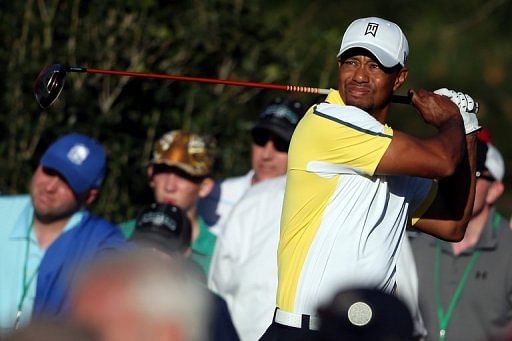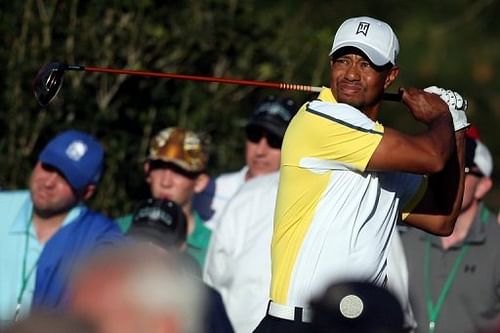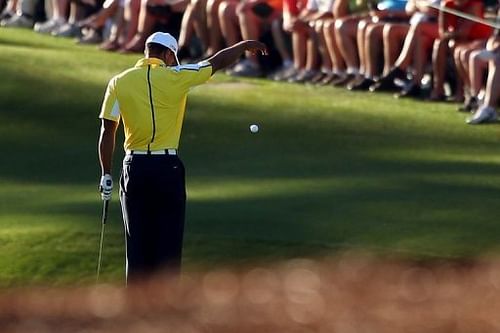
Augusta was right not to disqualify Woods: USGA, R&A
LOS ANGELES (AFP) –

Tiger Woods hits a drive on the 15th hole during the second round of the Augusta National on April 12, 2013. Masters officials came up with a right in opting not to disqualify Woods from the first major of the year, golf’s global governing bodies said.
In the face of two wrongs, Masters officials came up with a right in opting not to disqualify Tiger Woods from the first major of the year, golf’s global governing bodies said.
The Royal & Ancient and the US Golf Association, governing bodies of the game worldwide, issued a lengthy statement Wednesday on the contentious issue saying Masters officials acted correctly in exercising discretion but that the case shouldn’t set a general precedent.
Tournament officials were alerted by a television viewer to the fact that Woods may have taken an incorrect drop on the 15th hole of the second round at Augusta National last month.
However, they decided no infraction had occurred and failed to discuss the matter with Woods before he signed his card.
Woods signed for a 71, but acknowledged in a post-round interview that after hitting the flagstick and seeing his ball roll into the water at 15 he had dropped the ball about two yards back from the original shot to avoid a similar risk.

Tiger Woods drops his ball after he hits it into the water on the 15th hole during the second round of the Augusta National on April 12, 2013. Woods acknowledged that after hitting the flagstick and seeing his ball roll into the water at 15 he had dropped the ball about two yards back from the original shot to avoid a similar risk.
Rules require a drop “as nearly as possible” to where his original ball had been played, so he should have been assessed a two-shot penalty. Woods therefore faced disqualification for signing an incorrect card.
The USGA and the R&A concluded the Masters tournament committee “reasonably exercised its discretion” in waiving disqualification, since tournament officials could have perhaps prevented him from signing an incorrect card.
“In deciding to waive the disqualification penalty, the Committee recognised that had it talked to Woods – before he returned his score card – about his drop on the 15th hole and about the Committee’s ruling, the Committee likely would have corrected that ruling and concluded that Woods had dropped in and played from a wrong place.
“In that case, he would have returned a correct score of eight for the 15th hole and the issue of disqualification would not have arisen,” the USGA and R&A wrote.
However, they stressed that the incident “should not be viewed as a general precedent for relaxing or ignoring a competitor’s essential obligation under the Rules to return a correct score card”.
The statement also clarified that the rule revision implemented in 2011, after Ireland’s Padraig Harrington was disqualified from a tournament in Abu Dhabi over an infraction spotted by a television viewer, didn’t apply in Woods’ case.
That rule is an “extremely narrow exception” relating to use of high-definition or slow-motion video to identify facts “not reasonably visible to the naked eye,” the USGA and R&A said.